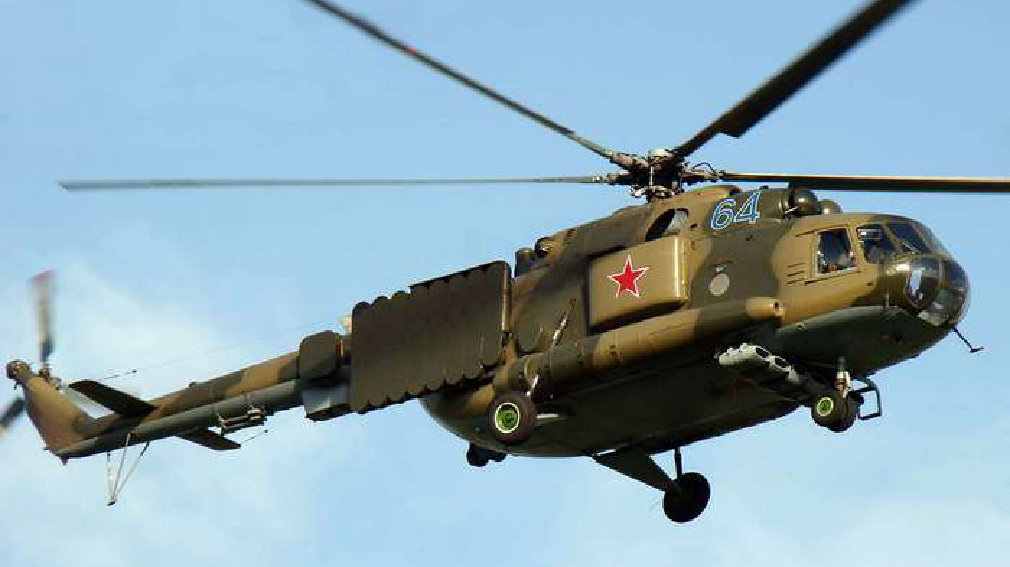Please listen to this audio as it explains the context and the genesis of the #FSBletters. It will help you understand the prism through which these letters are to be read. You will understand in real human terms why #WindofChange writes to Vladimir. https://www.youtube.com/watch?v=QVrSq3mXMaY&list=PLh21oKaIugOGiUhtKFyVp-k7r5rwnGBpn">https://www.youtube.com/watch...
As always, my comments for clarification are in (parenthesis). #WindofChange& #39;s parenthesis are in [brackets]. So, let& #39;s roll:
"Vladimir, hello!
I will now share information on events that occurred six months ago.
"Vladimir, hello!
I will now share information on events that occurred six months ago.
In this instance it’s easier: I can afford to provide specifics which the experts will be able to cross-verify, but details which won’t risk me being identified.
In August 2021, #Russia was quite seriously preparing for a localized military conflict with Japan. Confidence that the countries would enter the stage of acute confrontation and even war was high.
Why #Ukraine was chosen for war in the end [the scenario was not changed much] is for others to answer.
So, August 2021. The Eastern Military District [VVO] was supplied with Mi-8MTR-1 helicopters, equipped with the "Rychag-AV" (Рычаг-АВ) electronic warfare system,
the FSB declassified the data from the interrogation of Otozo Yamada, commander in the Japanese army during World War II,
the Taliban takeover of Afghanistan happened immediately after the US troops withdrew, damaging the reputation of the US Democratic Party. Events that don& #39;t seem to belong on the same page.
But let& #39;s start with the main point. The key stumbling block between Moscow and Tokyo is the Kuril Islands.
For Japan, there is a cornerstone of its modern geopolitics here: its status as a World War II loser still prevents the Japanese from having an official military force, a foreign intelligence service, and a number of other things.
For the Land of the Rising Sun (Japan), the return of the Kuril Islands would actually mean a revision [or even cancellation] of its postwar status.
For Moscow - the Kurils are a bargaining chip. It& #39;s a bargaining chip with Japan but even with China: The Heavenly Kingdom (China) takes any attempted revisions to the postwar agreements very negatively,
and a potential victory for Tokyo in the dispute over the Kurils is unacceptable to Beijing. It is so unacceptable that China would easily complicate Russia& #39;s life for making such a "gift."
Former Japanese Prime Minister @AbeShinzo was already placing a strong emphasis on two things: trying to "negotiate" with Russia over the Kuril issue and reforming the country& #39;s intelligence service.
“Reform" meant creating its own foreign intelligence service along the lines of Britain& #39;s MI6. Historically, Japan& #39;s military intelligence has always been highly capable, but after the defeat in World War II it was simply abolished at the behest of the victors.
And if #Putin was still trying to intrigue the Japanese at the end of July (2021) with an "unprecedentedly interesting" offer on the Kuril Islands, on the backdrop of Afghanistan everything began to change rapidly. But what is the connection?
First, I will highlight specifically what began to change. Well, we declassified the interrogation data of Otozo Yamada, a commander in the Japanese army during World War II.
Initially, as early as August 8 (2021), the Russian mass media were rather stingy in their comments on the news: they claimed that Japan had been preparing for war with the USSR since 1938, plans of the attack were being hatched, diversions were made, etc.
But on August 16, the Russian media literally exploded at the same time, discussing the declassified documents in a completely different tone:
The Japanese allegedly conducted terrible biological experiments on Soviet prisoners, and treated Soviet prisoners extremely poorly.
The Japanese allegedly conducted terrible biological experiments on Soviet prisoners, and treated Soviet prisoners extremely poorly.
The details of the plague lice that were used to torture prisoners were scrawled all over the place.
Russia Today, the main mouthpiece of international propaganda, also joined in.
Russia Today, the main mouthpiece of international propaganda, also joined in.
The FSB actually had the task to launch an information campaign against Japan in Russian society. Abruptly, suddenly and almost unexpectedly. That is, only if you don’t take into account the events in Afghanistan.
The Americans obviously didn& #39;t get it right, at minimum with this picture:
The regime they supported managed to collapse before the Americans even got out.
The regime they supported managed to collapse before the Americans even got out.
The Taliban, who met no resistance, even slowed down towards the end, so as not to drown in the shortage of middle-ranking managerial personnel needed to wield the acquired authority.
@BarackObama even turned off comments on his social networks, tired of the barrage of criticism directed at him.
And we are not even discussing the U.S.’ possible game of geopolitics - we are talking about image and the picture of what was happening. [Trump, of course, immediately attacked Biden in the information field]
(Thread continues https://abs.twimg.com/emoji/v2/... draggable="false" alt="⬇️" title="Pijl omlaag" aria-label="Emoji: Pijl omlaag">)
https://abs.twimg.com/emoji/v2/... draggable="false" alt="⬇️" title="Pijl omlaag" aria-label="Emoji: Pijl omlaag">)
(Thread continues
And this is where the question of Japan for the United States [through the Russian eyes] was opportune.
But before that, let& #39;s go back to the subject that the Russian Air Force was aggressively deploying the Mi-8MTPR-1 helicopters during the same period.
But before that, let& #39;s go back to the subject that the Russian Air Force was aggressively deploying the Mi-8MTPR-1 helicopters during the same period.
If we discuss the technical characteristics of the Electronic warefare "Rychag-AV" on these helicopters, this system is capable of interfering with the electronic radar of the enemy over the radius of hundreds of kilometers.
And the reason for such actions is the fear of American missile systems, which very soon could have been very close to Russian borders (around Japan). "Strike first" and all that kind of stuff.
The U.S. did have plans in this region.
The priority, of course, is the growing confrontation with China, and the peak of this confrontation is scheduled for 2023, when Chinese leader Xi Jinping will seek re-election.
The priority, of course, is the growing confrontation with China, and the peak of this confrontation is scheduled for 2023, when Chinese leader Xi Jinping will seek re-election.
To make clear, Xi Jinping is a key opponent of the democratic camp in the United States, so the victory of the head of the Communist Party of China in the election will make the confrontation between the United States and China very hot.
( #WindofChange& #39;s intentional use of the lowercase "d" in "democratic" above is rather intriguing.)
This is why it was seen as extremely important for Washington not just to get Japan& #39;s support, but to delegate to it a rather complicated function in confrontation with China.
Tokyo does not have a burning desire cross certain red lines with Beijing, but...
If the United States makes the most significant [or, more precisely, visible] contribution to the Russo-Japanese conflict [even if it is quite local), namely, a victory for the Japanese side, the Japanese side will automatically owe too much to Washington.
And Washington would& #39;ve shifted the attention of domestic audiences from failure in Afghanistan to success in Asia.
A caveat here: the Russian authorities [as You refer to them, PolitBureau 2.0] really believe that all the countries around them, if they cooperate with the United States, want to attack us.
For Japan, the very notion of "victory" in such a hypothetical conflict could consist of only one thing: the signing of an international treaty that would effectively "end" the status as the capitulating country (from WW2) to allow some outcomes to be reconsidered.
These outcomes may be a pure formality, but the Kuril Islands look absolutely perfect.
At the very least, to escalate the situation to the maximum, threatening war and then starting negotiations was acceptable (in Russia). Just like prior to the war with Ukraine, which did not prevent the war.
Russia is lagging in this geographical direction (East Asia), so “silencing the far-east sky” – is a task capable of providing Moscow considerable points.
And the Afghan events have apparently finally convinced the Kremlin that the U.S. will somewhat speed up the process of resolving the Kuril question.
The likelihood of a military conflict was considered non-zero, and there was active spin in the Russian information space against Japan.
The bet was placed on the fact that the Japanese specialized in brutal biological experiments, showed inhumanity, and had a disposition for Nazism.
And they should have demilitarized after the war, but they violate these regulations, creating risks for Russia.
And they should have demilitarized after the war, but they violate these regulations, creating risks for Russia.
Subjects that made headlines (in Russia in August 2021): Russia saved the world from biological war, declassified evidence of preparations for an attack by Japan on the USSR, etc.
There wasn’t much faith in a victorious blitzkrieg in the event of possible military clashes.
Apparently, that is why the war at that time and place did not start [at that time - the summer of 2021 - no one believed in it, nor in the war with Ukraine].
Apparently, that is why the war at that time and place did not start [at that time - the summer of 2021 - no one believed in it, nor in the war with Ukraine].
But on the whole, war was inevitable for Russia due to the maniacal desire for war by the leadership [Putin is not alone in this]. This has become definitively obvious today; it was simply an underestimation of the level of insanity at the time.
( #WindofChange cites these specific articles from August 2021 in Russia media in this #FSBletters here:) https://web.archive.org/web/20210824112723/https://topwar.ru/186158-kak-sssr-spas-mir-ot-biologicheskoj-vojny-kotoruju-gotovila-japonija.html">https://web.archive.org/web/20210...
https://web.archive.org/web/20210820033851/https://www.rbc.ru/society/20/08/2021/611f08bb9a7947be03a97747">https://web.archive.org/web/20210...
https://web.archive.org/web/20220322003737/https://profile.ru/news/society/rassekrecheny-dokazatelstva-podgotovki-yaponii-k-vojne-s-sssr-906324/">https://web.archive.org/web/20220...
And there are many-many more such references, which in August 2021 were in the Russian media.
And now the bulk of the combat-ready units from that direction have been redeployed to Ukraine.”
And now the bulk of the combat-ready units from that direction have been redeployed to Ukraine.”

 Read on Twitter
Read on Twitter
![For the Land of the Rising Sun (Japan), the return of the Kuril Islands would actually mean a revision [or even cancellation] of its postwar status. For the Land of the Rising Sun (Japan), the return of the Kuril Islands would actually mean a revision [or even cancellation] of its postwar status.](https://pbs.twimg.com/media/FRe4mOCUYAAW_y6.jpg)





